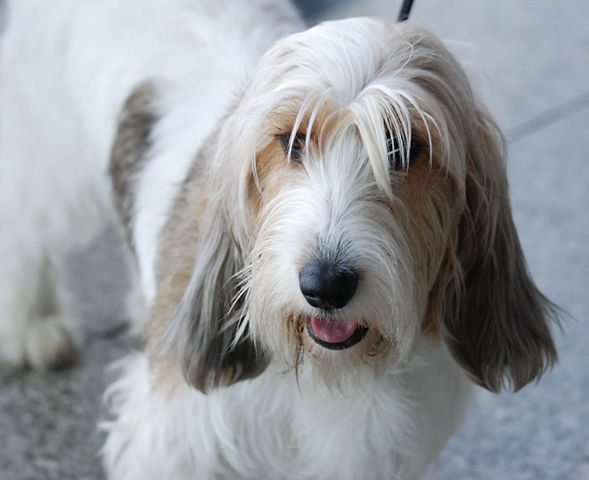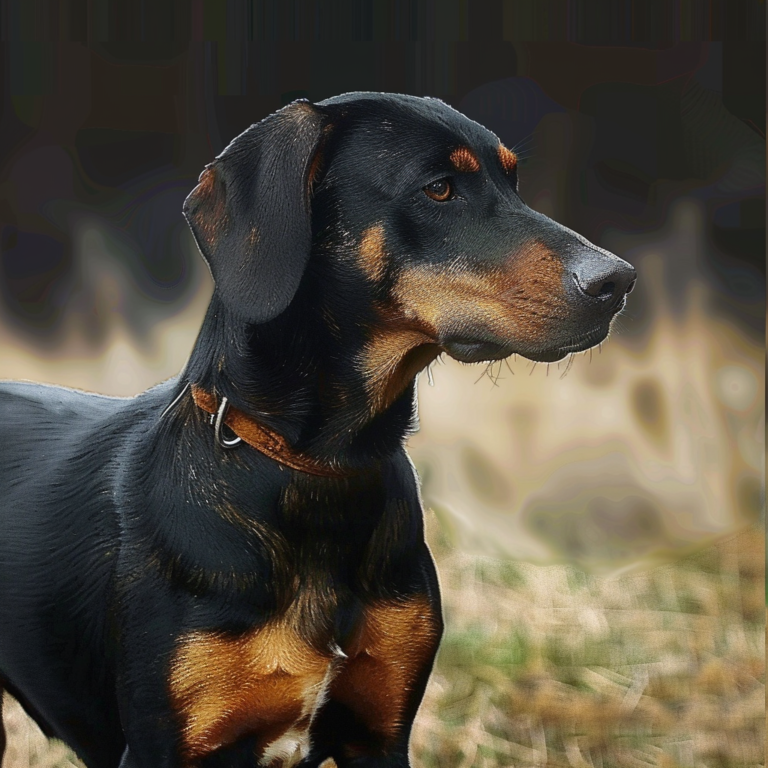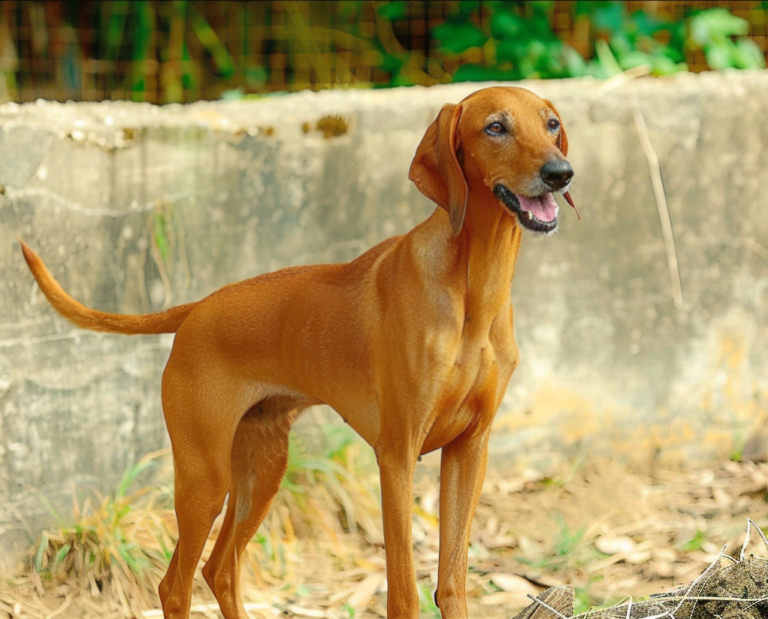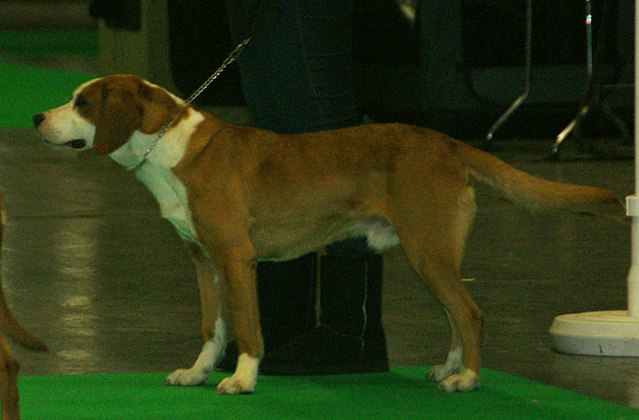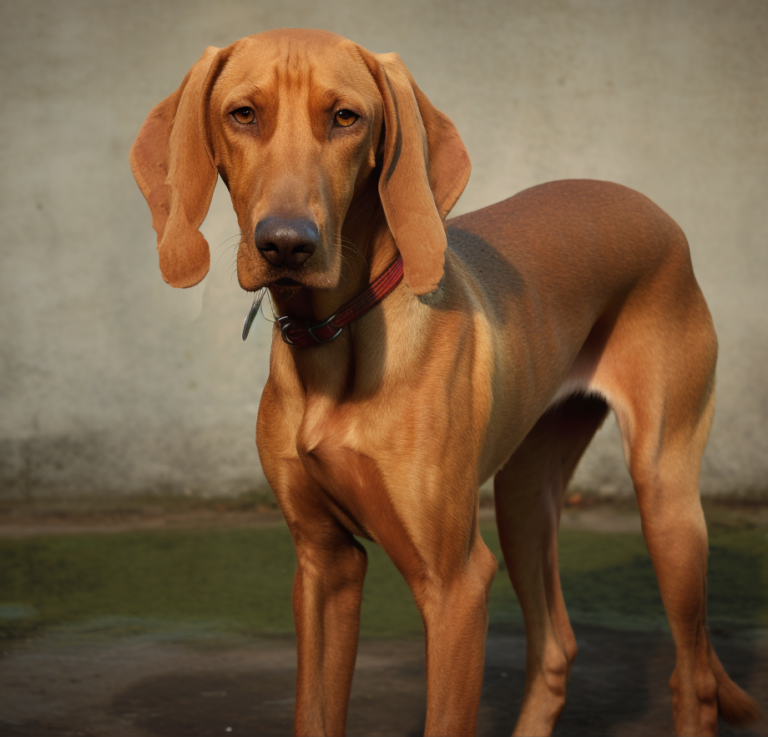The Petit Basset Griffon Vendeen is a small ancient scenthound from France. In order to say his name in a reasonable amount of time, he is given the nickname “PBGV”, which is what he is most often referred to as. This breed does best with owners who are experienced with dogs, particularly hounds or other stubborn breeds. They are not as easy to raise as a Golden or a Lab, but then again… that is part of their appeal.
Despite their occasional stubbornness, this breed is endlessly happy, friendly and sociable. They love to meet new people and they get excited easily. PBGVs are always moving, always exploring, and sometimes getting in trouble for it! The mixture of curiosity and fearlessness lends itself well to troublemaking. They do also love attention and affection from their owner… but not until they have fully explored and satisfied all of their curiosity first. Although independent, the PBGV does need attention from his owner as well as enough mental and physical stimulation to keep him from becoming bored. A bored dog will sometimes become destructive.
PBGVs are not the first breed most people think of when they picture obedient dogs. This is not to say that the breed isn’t trainable, it just means that they are independent creatures and prefer doing things their own way. The trick is to make obedience training enjoyable! For intelligent dogs such as these, a trainer must always be mixing things up in order to keep things interesting. PBGVs, like most dogs, learn best when their brains are challenged. For the owner whose intelligence matches that of their dog, they will often find that this breed is, in fact, very trainable. They might just have to go about the process differently than with another breed! Trained PBGVs can compete in events such as tracking, conformation, CGC, obedience, and agility. Some owners go so far as to work their dogs in Search and Rescue!
Like many scenthounds, the PBGV has a voice and he is not afraid to use it. For such a small dog, his howl can rival that of much larger breeds. PBGVs will bark, sing and howl for all sorts of reasons and is therefore not the best choice for someone living in an apartment or with close neighbors. For those who have more than one, a pack of PBGVs will sing together! This can be either annoying or beautiful, it depends on the person. Despite their short-legged appearance, this breed does need regular exercise. These are athletic hunting hounds, bred for running in the fields all day, chasing rabbits! As such they are not content to just lay around the house, nor do they make good lap dogs. They require an energetic owner who is responsible enough to give them the exercise they need. Letting a PBGV out to romp in the yard is certainly not enough. Not only is it not a good enough workout, but without a secure fence most PBGVs will be gone within minutes. Their high prey drive can compel them to leave the safety of their yard in search of hunting opportunities. It can also motivate them to climb over, or dig under, a fence.
The PBGV is generally very friendly with other dogs. This is not surprising as they were bred to hunt in packs. Many will greet another dog vocally and enthusiastically. The breed is also exceptional with children, although it must always be repeated that the child should be taught how to interact fairly with the dog. In fact, this breed is so friendly with everyone he meets (dogs, children, friends and strangers) that he is a natural therapy dog. Getting your PBGV certified to practice this skill is often beneficial both to owner as well as dog! One exception to the above rule (friendliness) has to do with cats. PBGVs with exceptionally high prey drives may not be able to live peacefully with cats. Others will be fine as long as they are introduced to the cat early on. Still others will get along with cats in the house, yet chase them outside.
